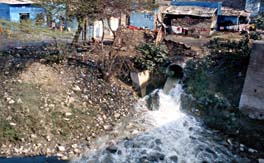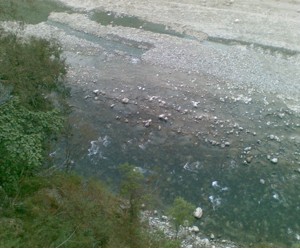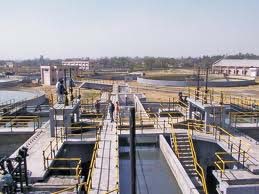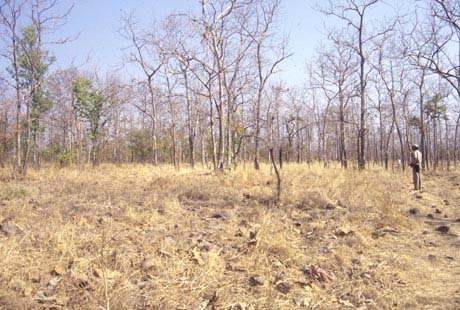India
Polluted river stretches in India: Criteria and status - A report by Central Pollution Control Board
Posted on 04 Oct, 2011 10:53 PMThis brief report by the Central Pollution Control Board (CPCB) presents an analysis of the monitoring of the water quality in India under the National Water Quality Monitoring Programme. The water quality data for the years 2002-2008 has been analysed and monitoring locations exceeding the water quality criteria have been identified as polluted locations with respect to risk.
Water and wastewater analysis – A guide manual by Central Pollution Control Board
Posted on 03 Oct, 2011 10:14 PM This guide manual on water and wastewater analysis prepared by the Central Pollution Control Board (CPCB), caters to the need of evolving a simplified code of practice for the lab
This guide manual on water and wastewater analysis prepared by the Central Pollution Control Board (CPCB), caters to the need of evolving a simplified code of practice for the lab
Cabinet approves new Mines and Minerals Development and Regulation Bill (2011)
Posted on 01 Oct, 2011 11:42 AMContent courtesy: Press Information Bureau
![]()
The Cabinet has taken a decision to place a proposal with Parliament to introduce the Mines and Minerals (Development and Regulation) Bill (MMDR Bill), 2011, in terms of the National Mineral Policy, 2008 and also repeal the existing Mines and Minerals (Development and Regulation) Act, 1957.
Imagine H2O invites for prize and incubator - Competitions for water innovation
Posted on 30 Sep, 2011 11:10 PM
Imagine H2O is a not-for-profit company with a mission to inspire & empower people to solve water problems. Its vision is to turn water challenges into opportunities.
Water conservation through better irrigation
Posted on 26 Sep, 2011 11:30 AMArticle and image courtesy: IndiaWaterReview

The agriculture sector in India, like elsewhere in the world, remains the largest consumer of water. As much as 80-85 per cent of India's available water resources are deployed annually in the agriculture sector, with industry being the second-most largest water consumer. But, contrary to the amount of efforts being put among industrial consumers to bring down their water consumption, agriculturists remain stuck on age-old methods and systems that lead to wastage of water.
So, while industry has been spending money on conducting in house research and development (R&D) to bring down their overall water consumption for making goods and products as well as deploying technologies that treat and reuse water and wastewater better, the agriculture sector has maintained status quo. Across India, farmers are still using flood irrigation methods for their crops. Most of them have not even head of drip irrigation or are so poor that they cannot afford to invest in drip irrigations systems.
WSP-South Asia invites Short Term Consultants for SDA, Orissa, Bihar, MP, Karnataka & Meghalaya
Posted on 26 Sep, 2011 09:55 AMContent courtesy: DevNetJobsIndia.org

The Water and Sanitation Program (WSP) is a multi-donor partnership administered by the World Bank to support poor people in obtaining affordable, safe and sustainable access to water and sanitation services.
EU supported programme on urban local bodies in development - Call for proposals - Apply by November 18, 2011
Posted on 25 Sep, 2011 07:24 PM
India and the European Union (EU) are committed to an equal and dynamic dialogue on all areas of mutual of interest and concern as major actors in their own regions, and as emerging global players on the world stage. In today’s rapidly evolving international order, India and the EU are increasingly called upon to play major roles, both within their respective regions and beyond. The challenge for both is to strengthen the EU-India partnership through institutional and civil society frameworks and mechanisms that will sustain the necessary political will to fully realise all joint endeavours.
Revised guidelines for the centrally sponsored scheme of Common Effluent Treatment Plants (CETPs) - Ministry of Environment & Forests, 2011
Posted on 25 Sep, 2011 06:03 PM
Image courtesy: www.projectsmonitor.com
Under the Water (Prevention and Control of Pollution) Act, 1974, every industry has to provide adequate treatment of its effluents before disposal, irrespective of whether it is in stream, land, sewerage system of sea. The small scale industrial units (SSI), which are presently defined as units whose plant and machinery are valued at less than Rs. 5 crore occupy an important place in the country's economy. The SSIs are a major contributor to the total industrial pollution load of the country. However, only a small fraction of the effluent discharge from these units is estimated to be treated as on date.
Procedure to be followed for consideration of projects that involve forestland for grant of environment clearance
Posted on 25 Sep, 2011 04:59 PMThe Ministry of Environment and Forests (MoEF) has based on consultation with stakeholders revised the procedure to be followed for consideration of projects that involve forestland for grant of environment clearance under EIA Notification, 2006. The requirement of information/data/documents for such projects is also outlined in the office memorandum.

Image courtesy: Ministry of Environment and Forests
The Ministry of Environment and Forests (MoEF) had earlier issued an office memorandum vide no. J-11015/200/2008-IA.II(M) dated 31.3.2011 prescribing the procedure to be followed for consideration of projects for environmental clearance, which involve forestland.
Evaluation of Central Pollution Control Board (CPCB) – A report by Indian Institute of Management Lucknow
Posted on 25 Sep, 2011 02:41 PMThis evaluation report by the Indian Institute of Management (Lucknow) of the Central Pollution Control Board (CPCB), a central institution established to set environmental standards for all parts of the country focuses on strengthening of CPCB and its preparedness to undertake various measures as suggested by environmental statutes.